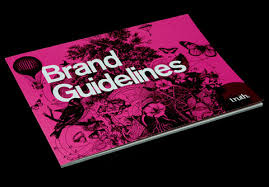 You’ve created a clear and compelling brand. Now what? If your brand isn’t properly implemented and maintained, even the best strategy will fail, wasting the time, resources and money you’ve invested. Consistency across all touch points reinforces and turns up the volume on your brand promise. Alignment in everything you say and do is essential to building awareness and nurturing positive impressions of your organization. Flawless execution is critical not just at launch, but throughout the entire life of your brand.
You’ve created a clear and compelling brand. Now what? If your brand isn’t properly implemented and maintained, even the best strategy will fail, wasting the time, resources and money you’ve invested. Consistency across all touch points reinforces and turns up the volume on your brand promise. Alignment in everything you say and do is essential to building awareness and nurturing positive impressions of your organization. Flawless execution is critical not just at launch, but throughout the entire life of your brand.
While underlying strategy will shape your visual and verbal expression, it is your brand management program that ensures the integrity of your brand image. Yet many companies jeopardize their investment by undervaluing the impact of proper brand guidelines, filing them away in a drawer, never to look at them again.
Here are five tips for getting the most out of your brand guidelines:
1. Embrace brand management
Although the creation and launch of a brand can be the most thrilling part, brand management is what delivers ultimate success. You have to invest in implementation as an integral part of rebranding. We’ve seen too many companies be penny-wise and pound-foolish when it comes to saving a few dollars by scaling back guidelines and training only to have their brand become distorted and disorganized over time. Don’t cut yourself short. If you have the business directive to update, evolve or redo your brand: do it right. Allot enough time and funds to guarantee proper execution now and into the future.
2.Train up
Learning the do’s and don’ts of your refreshed brand is neither a one time deal nor something everyone can easily grasp simply by reading a document. Don’t rely on your own memory of the strategy development or depend on your employees to readily absorb the guidelines just from print. Bring in the brand development team, including your agency, to train you and all of the communicators on the brand guidelines from strategy to usage. Have your agency meet with your internal team across all functions to train them on using templates. Many times they can share short cuts and advice that will ultimately save your team time. Furthermore, to fully guarantee maximum impact and a measureable difference in your brand, an employee engagement program should be implemented to enhance on-brand behaviors.
3. Know all the shapes and sizes
Brand guidelines can come in many different formats. Pick the ones that work best for your culture. Large, complex and global companies will benefit from having an online brand center such as Brand Ensemble, which provides a central, always-up-to-date resource for brand asset management, brand FAQ and collateral creation and approval. These types of tools are also the easiest to update and expand as brand elements are created and the system evolves. For companies where a static document is sufficient, a PDF or online flipbook can be easily distributed as well as accessed from a variety of places such as your computer desktop, tablet, or even phone for quick reference.
4. Give them the spotlight
Understanding the importance of the brand guidelines begins at the top of every organization. The CEO and CMO must endorse the brand guidelines to ensure they have the impact they should. Distribution and a cover letter should come from the CEO / CMO as a top-down endorsement of the new brand. And no one should be exempt from following the rules, especially senior management.
5. It takes a village
Your brand police should be more than just an internal contact person. Build a team that is responsible for the integrity of your brand globally. Assign staff throughout your operating footprint to monitor, approve and correct branded elements. Extend the team beyond the internal, and include your agency and your vendors in the policing process. You can even engage your entire staff by incorporating evaluation of on-brand behaviors in personnel reviews of all employees around the world. While bringing a brand to life may initially be the responsibility of a core team, sustaining it in the long term is a full-company job.
Source:Tenet Partners

